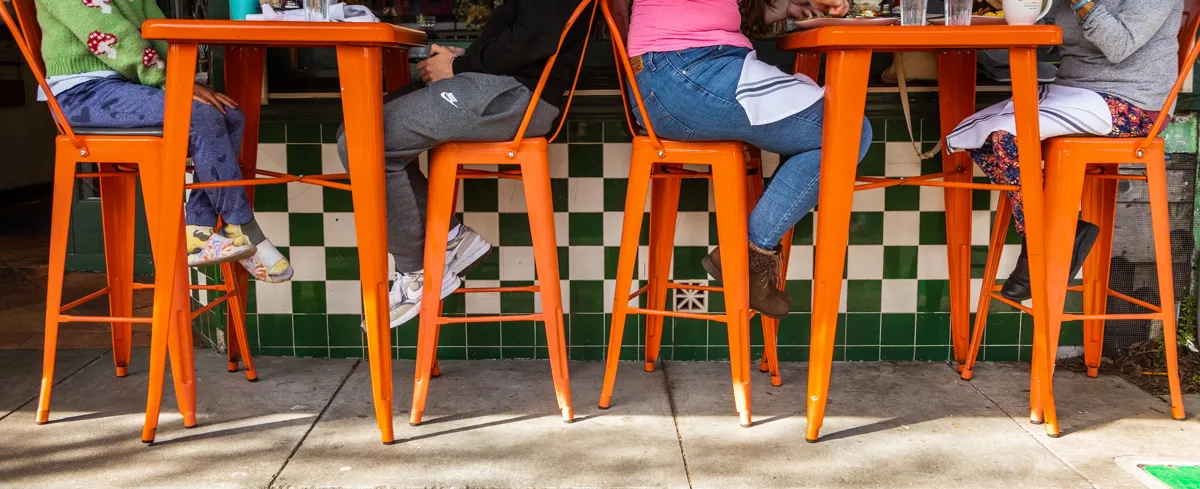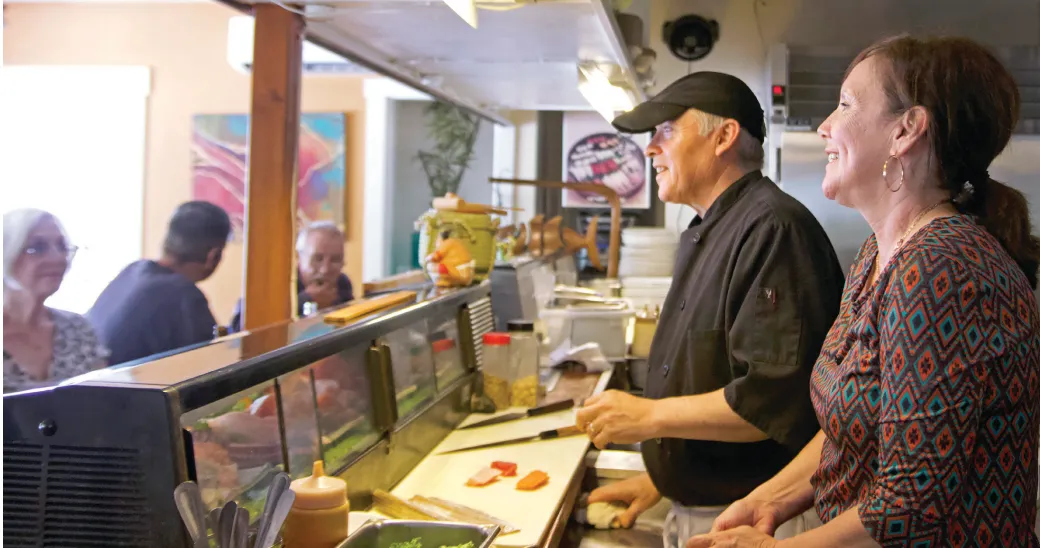Calistoga city staff is seeking clarification from the California Department of Transportation after a recent complaint exposed gaps in regulatory enforcement of sidewalk violations along Lincoln Avenue.
Maria Reznikova recently appealed a city citation and $1,800 fine for the outdoor sidewalk seating, planter boxes and signage at her Maria Concetto tasting room at 1367 Lincoln Ave.
Following that appeal hearing on Wednesday, Calistoga Police Chief Mitch Celaya, the hearing officer for the case, told the Tribune that he would hold off ruling on the matter until he receives clarification from Caltrans regarding which of the agencies is responsible for enforcement of the right-of-way encroachment.
“It’s as clear as mud,” Celaya said. “Once we have that answer, we’ll know whether it’s a code enforcement issue or not.”
Maria Concetto, city officials said, is just one of many establishments along Lincoln Avenue – which doubles as State Highway 29 – that have recently been noticed for offering outdoor seating and table service to customers along its storefront sidewalk.
Following those notifications, however, the involved agencies appear unsure how to proceed.
Fire Chief Jed Matcham, who also serves as Calistoga’s public information officer, said that while the city and Caltrans have a maintenance agreement for the sidewalk along Lincoln Avenue, no agreement exists for enforcing code violations.
“All code enforcement from the city is complaint driven,” Matcham said. “We don't go out and actively look for violations, but when we receive a complaint, we have to act on it.”
The city did away with three street parklets in April following months of equivalent confusion and debate between the city, the state roads agency and local business owners regarding oversight of guidelines pertaining to the outdoor dining pods.
The debate has now expanded onto the curb.
Caltrans spokesperson Vince Jacala said this week in an email to the Tribune that “any unauthorized personal property such as tables, chairs or planters placed by a business or other person on a sidewalk within the Caltrans right of way may be considered illegal encroachments subject to removal.”
He added, “Illegal encroachments within the Caltrans right of way may be addressed via violation notices from Caltrans and may also be enforced by the local city or county jurisdiction.”
Matcham said that in the case of Maria Concetto Winery, though, Reznikova’s specific city permit “does not allow her to serve outside of her business, her Alcoholic Beverage Control permit does not allow service outside her business, and Caltrans does not allow service on their right-of-way.”
But Reznikova said she feels singled out by the city.
“I think it's very unfair how the city addressed that,” Reznikova said. “If I was permitted to do that for two years, I should be able to continue doing that. It’s essential to me because people love to sit outside. I put flowers around that area, and it helps the city look nice. It's a wide sidewalk and there's plenty of room.”
She added, “The city is pointing their finger at me, and I think it's disheartening what is happening. Instead of support, I am getting all sort of negative emotion from the city.”
Celaya said that because the city’s code enforcement policy is complaint-driven he could see why Reznikova would feel singled out.
“The problem is, maybe three shops down, another business is doing the same thing, and is not being held accountable,” he said, adding that while several other dining establishments along Lincoln Avenue have received similar notices from the city, there are plenty more businesses that also have outdoor seating, signage and planter boxes that are also technically in violation but have not been cited.
Eric Reichert, president of Calistoga’s Chamber of Commerce, said it has been “confusing” to try to determine who’s in charge of the sidewalks.
“Everybody is pointing at each other and asking, ‘What's going on?’” Reichert said. “I don't know – I don't think a lot of people know – and I think that's why we're having this conversation trying to suss this out.”
He added, “I think outdoor seating is an important part of the streetscape. The question is, ‘How do we make that work within the confines of the existing code? And does there come a point where we might ask for that code to be changed?’”
Matcham, when asked if all sidewalk seating along Calistoga’s main street was in danger of being eliminated, said he was not aware of any city plans to enforce such a change but noted it could be an option.
“It’s probably not out of the question to get rid of all sidewalk seating,” he said. “It would be very difficult to tell one restaurant they can have it and another that they can’t. The city doesn't want to do that. If there are ways we can work with the businesses and with Caltrans, we will, but if Caltrans says we can’t, there's no way around that.”








